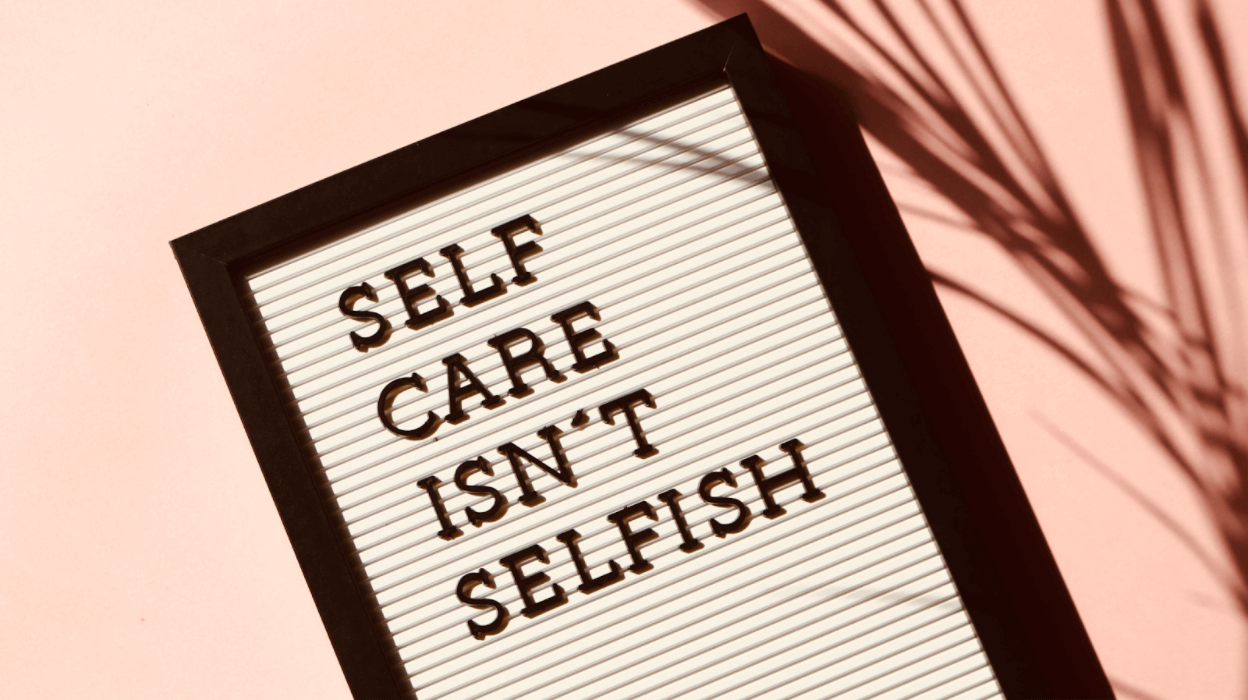
When people talk about mental health they often mention the term self-care. But what does that really mean? The term "self-care" is used frequently by the advertising industry to convince us (particularly women) that we "need" things like massages,
bath bombs, wine, expensive beach vacations, $90 "buttery soft" sweatpants and a dozen other things because that's how we take care of ourselves. Self-care IS very important, but we're talking about self-care in the truest sense—the time and energy
you put into making sure you are the healthiest version of yourself possible.
When people talk about mental health they often mention the term self-care. But what does that really mean? The term "self-care" is used frequently by the advertising industry to convince us (particularly women) that we "need" things like massages,
bath bombs, wine, expensive beach vacations, $90 "buttery soft" sweatpants and a dozen other things because that's how we take care of ourselves. Self-care IS very important, but we're talking about self-care in the truest sense—the time and energy
you put into making sure you are the healthiest version of yourself possible.
Sometimes, we feel like we have to spend all of our physical and emotional energy making other people happy, at the expense of our own well-being. Maybe guilt and the need to avoid conflict motivates those efforts, or fear that someone may not reciprocate our love if they don't get what they want. But you should never feel guilty about meeting your own personal needs before addressing the needs of others. In fact, when you take care of yourself and feel fulfilled, you are more able to tackle your responsibilities and contribute positively to the important relationships in your life. There's a reason airlines recommend that you "put your own oxygen mask on first" before turning your attention to the care of others. You can't be of service to anyone else if you aren't in good shape yourself.
An important part of self-care is creating healthy boundaries that give you time and space to recharge. It means communicating clearly and with love when you need to prioritize your needs before the needs of others. Taking care of yourself doesn't mean that you don't care about the needs of others. When you do need to practice self-care and it means potentially disappointing someone else, you can always set a specific expectation for a time in the future when you'll be available to them.
Most ways of taking care of yourself physically are pretty obvious. We know we should exercise, eat healthy food and get adequate sleep. For most of us, these are things we've been told since we were children. But these are often things we overlook in the hustle and bustle of our busy days.
Here are a few ways you can begin to incorporate physical self-care into your routine without feeling overwhelmed:
Most of us are probably less familiar with ways to practice emotional self-care. Emotional self-care is the practice of identifying your emotions and then taking action to honor those emotions in a way that will keep you feeling emotionally, psychologically and spiritually.
Consider incorporating some of these tactics to increase your emotional health:
Self-care will look different for you than it will for other people. Remember to simply find the physical and emotional actions that benefit your well-being as the unique individual you are.